- Home
- Margaret Pemberton
Zadruga Page 2
Zadruga Read online
Page 2
Her mother stepped away from their fractious relatives and towards her.
‘I was beginning to think you weren’t going to be here in time,’ she said, kissing her lovingly on the cheek. ‘It’s quite obvious the visit to Petersburg was a success and that a family announcement is to be made. I only hope it won’t prove to be premature.’
Katerina’s eyes were once more on the young diplomats standing on the far side of the gold-papered, chandelier-hung drawing-room.
‘Premature?’ she asked vaguely, her thoughts elsewhere. ‘How could be it premature, Mama?’
Her mother slid her arm lightly in hers and began to walk with her down the room. ‘The Tsar is a great equivocator,’ she said dryly. ‘He hates to hurt anyone’s feelings and Papa thinks it quite possible that he has agreed to Olga marrying Alexander without having the slightest intention that she will, in fact, ever do so.’
Julian Fielding was again in conversation with the French diplomat, his brows drawn together in a slight frown. Katerina dragged her eyes reluctantly away from him.
‘I’m sorry, Mama. What did you say? That the Tsar doesn’t truly want an alliance with us?’
‘He already has one,’ her mother retorted dryly, ‘and he doesn’t need to marry his eldest daughter to Alexander in order to maintain it.’ Beneath her high-piled chignon her fine-boned face was perturbed. ‘King Carol has high hopes of Olga marrying Prince Carol, who is his nephew and heir, and it has already been agreed that the imperial family will visit Romania early next month in order that Carol and Olga can meet.’
Katerina looked across to Sandro and Natalie. The puppy was back in Natalie’s arms and Sandro was laughing and tickling it behind its ears. If Sandro believed he was unofficially engaged to the Tsar’s eldest daughter, and if she then married Prince Carol, he would feel himself to have been monstrously insulted.
‘And you’re worried because you think Sandro is going to be hurt?’
Her mother didn’t immediately answer her. They were strolling past a cluster of cousins and Vitza, Eudocia’s twenty-year-old granddaughter, was saying authoritatively, ‘The Empress’s favourite colour is mauve and she is bound to wear mauve at the wedding. Grandmama will wear Serbian-blue and thinks that I should wear pink …’
Katerina felt a flash of amusement. If her mother’s prediction was correct, disappointment among their female relatives was going to be vast.
‘No,’ her mother said in answer to her last question when there was no longer a chance of being overheard. ‘My concern isn’t for Alexander. It is for Serbia.’
Katerina stared at her. Her mother rarely spoke of national issues, regarding politics as her husband’s province. That she should do so now, and in the Konak’s grand drawing-room, meant that something was seriously troubling her.
‘Why would it be so important if the Tsar reneged on a promise that Alexander marry Olga?’ she asked, struggling for understanding.
Her mother came to a halt in order not to come within hearing distance of the next group of cousins and second-cousins.
‘It would be serious because of the bad feeling that would arise. Your uncle has so far contained the impatience of the hotheads who want to help Bosnia and Herzegovina free themselves of Habsburg rule. He’s been able to do so because he has had Russia’s promise that when the time is right she will give us all the support she can in such a struggle. But the time isn’t now. For the first time in our history, thanks to your uncle, we are enjoying stability. We need to consolidate it, not plunge into armed struggle against the Austro-Hungarian empire.’
Though her mother had continued to speak quietly there was no mistaking her depth of feeling. They had reached the far end of the drawing-room and were now beginning to walk across its breadth. At the top end of the room the King was in conversation with Elena and her daughter. Natalie, Sandro and Bella had gravitated to Vitza’s circle and the doors leading on to the terrace had been opened, revealing a dozen white-naperied tea tables laden with plates of delicately cut sandwiches.
‘And if there was bad feeling against Russia, you think the hot-heads would gain popular support and plunge us into war?’
Julian Fielding was still in conversation with the French diplomat. She wondered what their subject of conversation was. She wondered how she could engage him in conversation herself without appearing too forward.
Her mother lowered her voice, saying with startling frankness, ‘Papa has long had a contact in South Slav. The group is made up of army officers and parliamentary officials and though their avowed aim is to restore Serbia’s boundaries to those she enjoyed in the Middle Ages, they have always been law-abiding. The new organization,’ she added darkly as they began to near Julian Fielding and his companion, ‘is not.’
Katerina felt her tummy muscles tightening in nervous anticipation. Her mother hadn’t chosen to join any of the previous cliques and groups they had passed in their circuit of the room but she might very well make an exception when she drew abreast of Julian Fielding. Tall and broad-shouldered, he was dressed with British reticence in a black tail-coat and pin-striped trousers; his only visible jewellery was the watch-chain looped across his waistcoat. The French envoy was dressed with far more panache, his ceremonial diplomatic uniform awash with gold braid, an emerald sparkling on the index finger of one hand, a diamond on the other.
Katerina was barely aware of him. Sunlight was streaming into the room through the long windows and open doors, burnishing Julian’s hair a dull gold. He wore it longer than other Englishmen she had met. Thick and springy as a Greek god’s, it curled low over his waxed shirt collar, giving him an air of almost Slavic flamboyance.
With great effort she returned her attention to her mother. It was extraordinary that their conversation should have veered on to the subject that had been causing her so much disquiet only a little while earlier. She wondered if she should speak to her mother about Natalie’s disturbing new enthusiasm for Slav unity. In ordinary circumstances it would have been a natural preoccupation that would have given no cause for concern. As it was, however, the new organization working for Slav unity was doing so by very dangerous methods, methods that Natalie was reckless enough to find attractive.
‘Mama,’ she began hesitantly, ‘this new organization Papa spoke of the other day. Is it trying to gain Karageorgevich support?’
‘The Black Hand would love Karageorgevich support,’ her mother replied tartly, ‘but it certainly won’t receive it. Your uncle’s main aim is to maintain Serbia’s new found stability, not put it at risk indulging in meaningless acts of violence.’
Katerina had been plunged so deep in thought she had been unaware of how rapidly they were approaching Julian Fielding and his companion.
‘Mama…’ she began again, but it was too late.
‘Good afternoon, Mr Fielding. Good afternoon, Monsieur Quesnai,’ her mother was saying pleasantly. ‘How nice to see you at what is usually only a family occasion.’
Aware she was letting him know that she knew the reason for his presence, Julian Fielding’s brown eyes gleamed with amusement. He enjoyed conversation with the Vassilovichs. Alexis and Zita Vassilovich both spoke excellent English and Katerina and Natalie had been educated from early childhood by an English tutor and spoke it flawlessly. ‘It is an honour to be here,’ he said truthfully as he took her proffered hand, bowing slightly over it.
As her mother turned her attention to Monsieur Quesnai, allowing him to raise her hand a hair’s breadth from his lips, Katerina was able to enjoy a moment or two of Julian Fielding’s undivided attention.
‘I take it you are as much in ignorance as the rest of us,’ he said in the easy, friendly manner she found so attractive.
There was no need for her to ask to what he was referring.
‘I think we shall be put out of our misery very shortly,’ she said with a slight, suitably restrained smile.
Inwardly she felt anything but restrained. Her heart was beating in sharp,
slamming little strokes she could feel even in her fingertips, the happiness she had felt on entering the room and seeing him, deepening and intensifying until she wondered how on earth she was going to prevent it from becoming embarrassingly obvious.
‘If the announcement is the one everyone is expecting, it will be Serbia’s gain and Britain’s loss,’ he said gallantly. ‘It’s no secret King George would very much have liked a Romanov bride for the Prince of Wales.’
‘Even after Olga is married there will still be three grand-duchesses available,’ she said impishly, her usual shyness wonderfully absent.
Beneath his narrow blond moustache his mouth tugged into a smile. ‘Maybe so, but it’s always the eldest daughter who is regarded as the real prize.’
She looked away from him quickly, the blood rushing to her cheeks, wondering if he was aware of how his remark could be interpreted.
When she trusted herself to once more look towards him he wasn’t looking at her, but across the room at Natalie.
‘His Royal Highness will be lucky if he retains ownership of that dog,’ he said, amused. ‘She and your sister seem to have adopted each other.’
It was true. Natalie was no longer with Sandro, but the puppy was gambolling around her feet as she moved away from one group of cousins and towards another.
Katerina regarded her sister indulgently. No other member of the family would have been able to appropriate the Tsarevich’s gift in such a guileless manner. At seventeen there was still something winsomely child-like about her. Although she had persuaded their mother to allow her to wear her smoke-dark hair in a sophisticated chignon, feathery tendrils had escaped and lay waywardly against her cheeks and another one curled provocatively in the nape of her neck. She was laughing now at something someone had said to her, her green cat-eyes dancing, her zest for life tangible and infectious.
‘I doubt if the King will allow it to leave the Konak,’ she said a trifle regretfully. ‘It would be too insulting if word got back to Petersburg that the Tsarevich’s gift had been given away.’
‘But only to a family member,’ Julian said with diplomatic expediency. He looked around the room. ‘And talking of family members, I had no idea the Karageorgevich family was so vast.’
‘Our interpretation of the word family is a little different from the British interpretation,’ Katerina said, hardly able to believe her good fortune at having such a long, uninterrupted conversation with him. ‘Family in Serbia means extended family. Traditionally we all live together in what you would call a clan, and we call a zadruga. The strongest male member acts as the zadruga’s chief and loyalty to him, and to every other member of the zadruga, is absolute. It is only in Belgrade, where life is sophisticated, that families no longer live communally under a patriarchal chief.’
The smile that had tugged at the corner of his mouth when he had looked across at Natalie, deepened. He had heard Belgrade described as many things, but never before as sophisticated.
‘Family and country are very important to Slavs,’ Katerina was saying, touchingly serious. ‘I cannot imagine how the Russian grand-duchesses must feel, knowing that when they marry foreign princes, they will have to leave their homeland.’
‘They are brought up to it,’ he said gently. ‘As princesses it is their fate and always has been.’
On the far side of the drawing-room, among the aunts’grey and purple ensembles, Natalie’s yellow-silk dress was a vivid slash of colour.
‘And you and Natalie,’ he asked, his eyes darkening slightly as they remained on Natalie. ‘Would either of you ever contemplate leaving Serbia?’
Katerina felt the blood beginning to drum in her ears. The conversation had taken a heart-stoppingly intimate turn and she wasn’t sure she could trust herself to answer without her voice betraying her hopes.
‘Perhaps …’ she said, struggling to sound indifferent, ‘if marriage made it necessary.’
On the terrace, teapots had been set on the exquisitely laid tables. A little to their left, her father had joined her mother and Monsieur Quesnai. In the centre of the room her uncle was taking up a position in front of the marble fireplace, obviously intending to make his announcement.
‘And Natalie?’ he prompted. ‘Would she feel the same?’
The reply to his question was easy. Natalie would certainly not feel the same. When they had been children, living in exile with their parents and her uncle in Geneva, she had said like a mantra every evening after they had said their prayers: ‘When we return to Serbia I will never leave it. Never, never, never!’
A slight smile touched her lips. ‘Natalie …’ she began, and was silenced by her uncle clearing his throat.
‘This is not, of course, an official announcement,’ he said to his suddenly hushed female relatives, his rheumatically-afflicted legs slightly apart, his hands clasped behind his back. ‘That will come later, when all the negotiations attendant to such an announcement have been completed.’ He rocked back on his heels a little. ‘This is a strictly family announcement,’ he continued, as if the diplomats he had so assiduously invited were not present, ‘and one that I know is going to give great joy.’ He paused and not even the rustle of a skirt or the tinkle of a bracelet broke the tense silence. He was not a man who relished speech-making and he put an end to the suspense swiftly. ‘It is my happy task to inform you that an engagement between Grand-Duchess Olga, eldest daughter of the Emperor of Russia, and Alexander, Crown Prince of Serbia, will be announced in the early months of next year.’
A buzz of elation rippled around the drawing-room. A Romanov bride for Serbia! It was wonderful news. Glorious news.
‘This is not, of course, to be discussed outside the Konak,’ King Peter concluded, knowing very well that the British and French governments would be appraised of the news within hours.
With immense and obvious satisfaction he began to lead the way out on to the terrace. He had scored a triumph. He, and everyone present, knew it, and soon the whole world would know it.
‘When we free Bosnia and Herzegovina from Habsburg rule, Grand-Duchess Olga will become not merely a queen but Tsarina of the whole South Slav peoples,’ a know-all voice was saying as they filed out of the drawing-room in the King’s wake. ‘That is why the Tsar has agreed to the union. It is because he knows his daughter’s influence and glory will one day stretch over the entire Balkan peninsula.’
It was an echo of the sentiments Natalie had expressed a little earlier.
As she seated herself at one of the tea tables Katerina wondered if the French and British governments were aware of just how impatient her countrymen and women were becoming in their desire for unity with their fellow, Habsburg ruled Slavs, and if they knew of the existence of the supposedly secret Black Hand.
Certainly if Julian Fielding was not aware of Black Hand’s existence he would be grateful to her if she informed him of it. She looked around to see where he was sitting and saw, with a surge of pleasure, that he was at her father’s table.
‘Please like him, Papa,’ she whispered beneath her breath, looking away quickly as, with a rustle of royal-blue taffeta, Vitza seated herself next to her.
‘You Vassilovich girls really do enjoy an unconscionable amount of freedom,’ she said enviably. ‘Max saw Natalie in a Belgrade kafana yesterday afternoon with a host of students.’
Katerina’s face froze. When she could trust herself to speak, she said rebuffingly, ‘We enjoy a reasonable amount of freedom, Vitza, not an unconscionable amount, and it certainly doesn’t extend to frequenting cafés.’
‘It did yesterday,’ Vitza retorted, unfazed. ‘Max was quite concerned about it. He thinks Natalie too avant-garde for her own good.’
Avant-garde was not the word Katerina would have chosen. The word she would have chosen was stupid. Criminally, crassly, unbelievably stupid.
‘Max was mistaken,’ she said, knowing full well that he hadn’t been; knowing that her earlier sense of unease had been entirely justified.
‘It couldn’t possibly have been Natalie. Natalie has music lessons on Tuesday afternoons.’
Vitza arched an amused eyebrow. ‘And where does she have her lessons? At home or at the Conservatoire?’
‘At the Conservatoire,’ Katerina replied icily. ‘And there’s no need to look so foolishly knowing, Vitza. That was exactly where Natalie was yesterday afternoon. At the Conservatoire. She was certainly not in a café.’
All around them the conversation was of the engagement that would be taking place next year. At a distant table Katerina could see Natalie chattering to Monsieur Quesnai, her eyes shining, her smile radiant.
Vitza grinned. ‘Believe what you want,’ she said with infuriating complacency, ‘but Max is telling the truth. It would be impossible for him to have mistaken someone else for Natalie.’
Katerina didn’t doubt it. She curled her fingers into her palms, itching to seize hold of her younger sister and shake a modicum of sense into her.
‘Did Max recognize any of the students in the café?’ she asked, hating herself for prolonging the conversation yet knowing it was a question that had to be asked.
‘No, why should he?’ Vitza was affronted. ‘They were students for goodness sake, not cavalry officers.’
Katerina’s eyes were still on Natalie. Unknown to the great-aunts sitting at her table she obviously had Bella on her lap, for she kept surreptitiously lowering sandwiches beneath the overhang of the tablecloth where they instantly disappeared.
‘Except one,’ Vitza added. ‘He knew the name of one of them, a Bosnian.’
‘And what was it?’ Katerina asked, wondering what she was going to do about the situation; wondering if it could be resolved without her parents learning of it.
‘Princip,’ Vitza said, losing interest in the conversation now that Katerina no longer seemed perturbed by it. ‘Gavrilo Princip.’
Chapter Two
‘Princip? Princip?’ Natalie said vaguely, stalling for time. ‘I’m not sure I recall the name.’

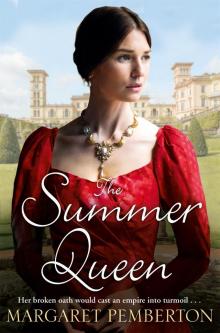 The Summer Queen
The Summer Queen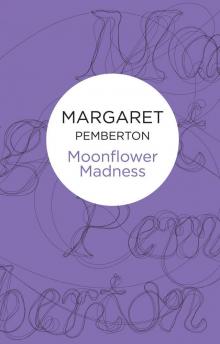 Moonflower Madness
Moonflower Madness The Londoners
The Londoners The Flower Garden
The Flower Garden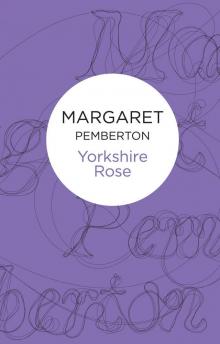 Yorkshire Rose
Yorkshire Rose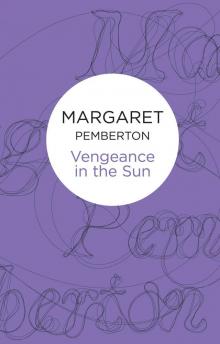 Vengeance in the Sun
Vengeance in the Sun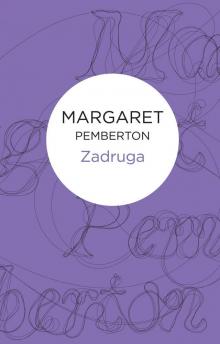 Zadruga
Zadruga Beneath the Cypress Tree
Beneath the Cypress Tree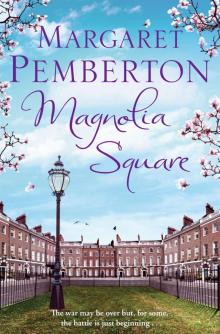 Magnolia Square
Magnolia Square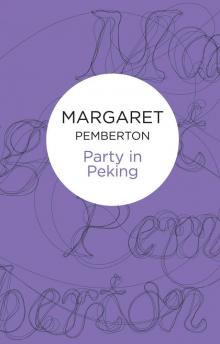 Party in Peking
Party in Peking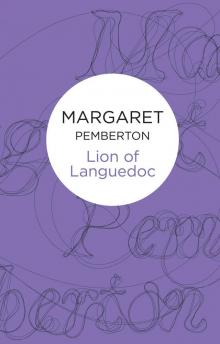 Lion of Languedoc
Lion of Languedoc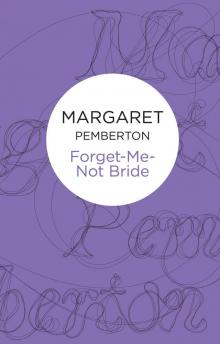 Forget-Me-Not Bride
Forget-Me-Not Bride The Guilty Secret
The Guilty Secret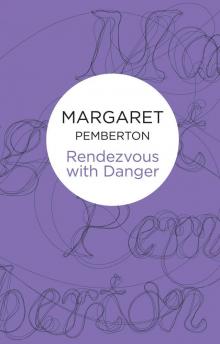 Rendezvous With Danger
Rendezvous With Danger A Season of Secrets
A Season of Secrets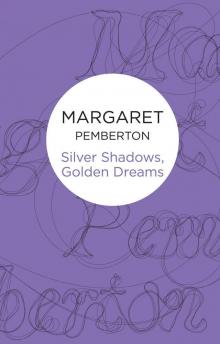 Silver Shadows, Golden Dreams
Silver Shadows, Golden Dreams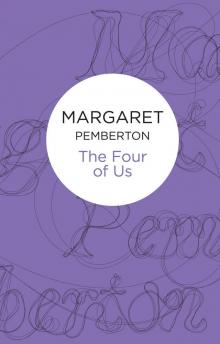 The Four of Us
The Four of Us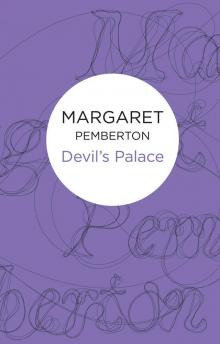 Devil's Palace
Devil's Palace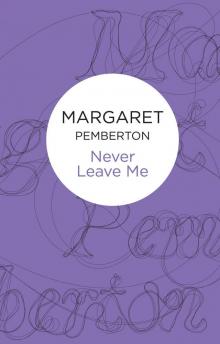 Never Leave Me
Never Leave Me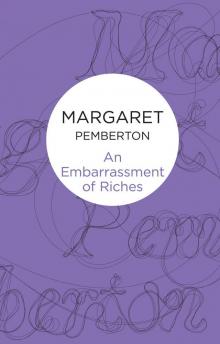 An Embarrassment of Riches
An Embarrassment of Riches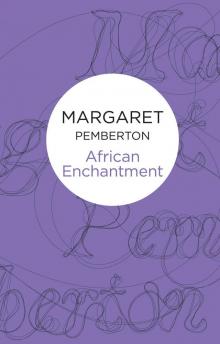 African Enchantment
African Enchantment White Christmas in Saigon
White Christmas in Saigon Coronation Summer
Coronation Summer A Multitude of Sins
A Multitude of Sins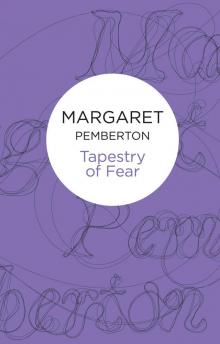 Tapestry of Fear
Tapestry of Fear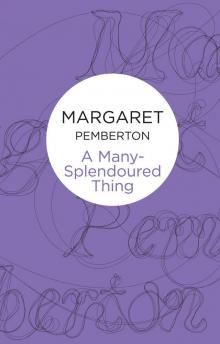 A Many-Splendoured Thing
A Many-Splendoured Thing